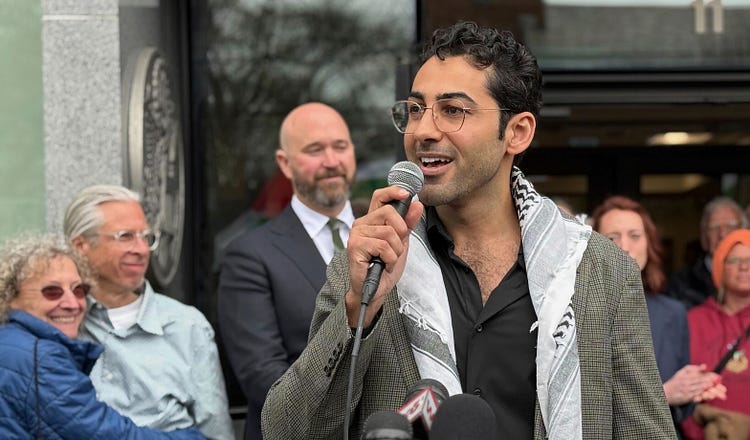
“I am saying it clear and loud to President Trump and his cabinet: I am not afraid of you,” said a defiant Mohsen Mahdawi after the pro-Palestinian student organizer at Columbia University was freed last week from federal custody while he fights the administration’s push to deport him.
In his public statements since his release, Mohsen Mahdawi has portrayed himself as a blameless victim of a heavy-handed effort by the Trump administration to punish foreign students for their political opinions. “My only ‘crime’ is refusing to accept the slaughter of Palestinians, opposing war and promoting peace,” he wrote in The New York Times on Friday.
Much of the news coverage has struck a similarly sympathetic tone, focusing on Mahdawi’s defiance—and his belief in the need for common ground between Israelis and Palestinians. In his first network television interview after being freed, he called his release “a light of hope.”
But court filings, a police report, and social media posts paint a very different—and much more troubling—picture of the activist locked in a legal fight with the administration. At stake here is not just the question of who Mahdawi really is—but how he obtained a green card to begin with and whether he should keep it.


